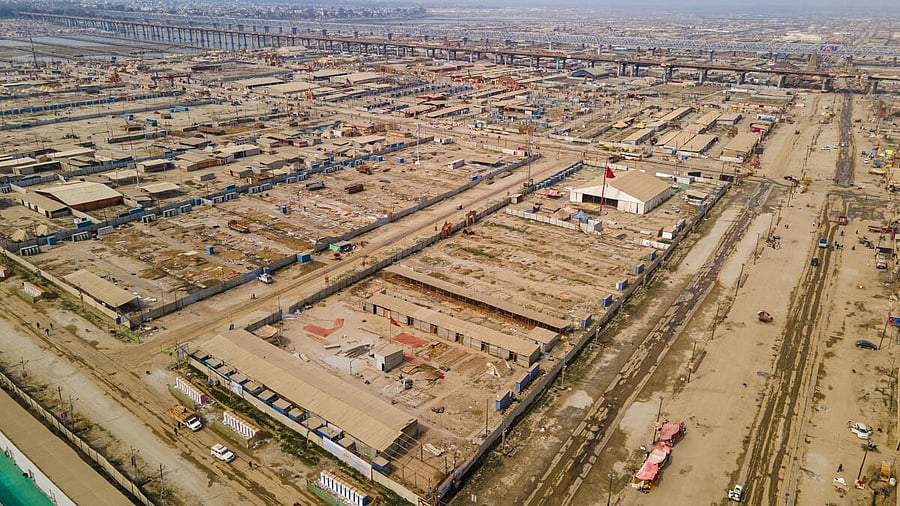
An aerial view of the Sangam area a day after the conclusion of Maha Kumbh 2025, in Prayagraj
Credit: PTI File Photo
Maha Kumbh, the religious fair that stretched over 45 days, culminated on February 28 and is now being followed up with a massive cleanliness drive in Prayagraj, Uttar Pradesh.
It has been estimated that it will take 15 days to dismantle the Kumbh 'tent city' and clean the 4000-hectars of land on which the fair took place. There were 1.5 lakh toilets and urinals and 10,000 garbage bins at the site.
Thousands of sanitation workers are undertaking the mammoth clean-up drive, working tirelessly from 6 in the morning to 6 in the evening according to a report by Hindustan Times.
A total of 600 metric tonnes of waste is being collected and will be sent to the Baswar waste processing plant located on the outskirts of the city.
As per the report, 1.5 lakh mobile toilets present on the fair grounds have been emptied using 242 cesspool suction machines. The sewage is being sent to treatment plants.
The Prayagraj Mela Authority (PMA) reported that within 6 days of the fair ending, the cesspools of all portable toilets spread across the 25 sectors of Mahakumbh Nagar had been emptied.
The 244 cesspool suction tankers which included 94 tankers from PMA and 150 privately-acquired ones were used in the clean-up.
In order to clean solid waste generated, 120 tippers and 40 compactors are working in 2 shifts, for 8 hours each. It is estimated that it will take between 7 to 10 days to clear the solid waste.
The National Green Tribunal (NGT) is also assessing the impact of the fair on the riverbanks of Prayagraj. According to the contract signed between NGT and PMA, authorities must submit a report on waste disposal within 15 days of the fair ending. The report must highlight that the entire grounds have been cleared of waste.
Vijay Kiran Anand, a mela officer, outlined the three priorities of the PMA — to restore the area to its original state within 7 to 10 days, pay all the dues for the 550 permanent projects at the fair ground and within the city limits, and finally, ensure a smooth religious experience to all the devotees.
The 240 million litres of greywater and 16 million litres of faecal sludge was generated daily, according to the report.
Traditional methods were employed along with modern techniques to treat the sewage. 10 sewage treatment plants, sewerage from 37 drains and 37.75 lakh liner bags were used in the waste disposal process.
